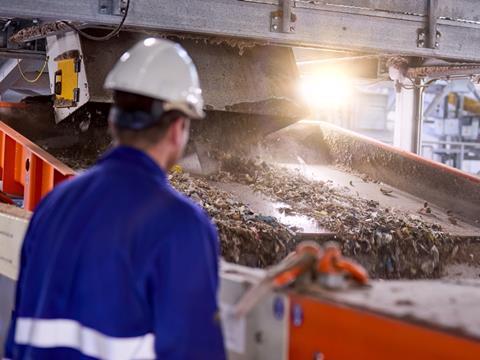
Renewi and Freepoint Eco-Systems are set to enter into a long-term partnership to produce feedstock for the advanced recycling of waste plastics.
This collaboration aims to divert end-of-life plastics from incineration by developing the sorting and treatment infrastructure. The goal is to supply 80,000 tonnes of feedstock for Freepoint Eco-Systems’ first European advanced recycling facility to be located at the Kluizendok site in Ghent, Belgium.
Earlier this year, Freepoint announced the development of its flagship advanced plastics recycling facility in Ghent. In the coming months, Renewi and Freepoint Eco-Systems will work together to establish the pre-processing infrastructure, which they say will allow for the supply of 80,000 tonnes of feedstock for that plant.
Pyrolysis in advanced recycling is a thermal decomposition process in which existing plastic materials are heated without oxygen to break them down into smaller molecules for use as raw material.
Freepoint Eco-Systems says that its new advanced recycling facility will make it possible to recycle complex, mixed plastics that are difficult to process in any other way.
To supply this facility, Renewi aims to leverage its accumulated expertise with its residual waste sorting line, which has been operational for over a year and has reportedly already demonstrated the ability to produce high-quality feedstock for advanced recycling.
This new sorting line will utilize various sorting techniques, including the utilization of residual heat from the advanced recycling plant. The companies believe that this process will transform different end-of-life plastic sources into a consistent and high-quality feedstock, reintegrating them into the circular economy.
“This project is a clear example that only through cross-industrial collaboration can the plastic waste crisis be tackled,” said Jacco de Haas, Freepoint Eco-Systems’ Chief Commercial Officer, Recycling Europe.
“The waste streams which now end up in incineration, combined with the expertise of Renewi and the new sorting line, will increase the total plastic recycling rates and will be fully complementary to mechanical recycling.”
If you liked this story, you might also enjoy:
How are the top brands progressing on packaging sustainability?
Sustainable Innovation Report 2024: Current trends and future priorities
Reuse vs. single use – which is better for the environment?
The ultimate guide to global plastic sustainability regulation














No comments yet